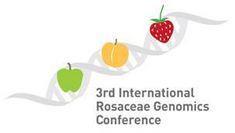
New Zealand is placing itself at the centre of global research by hosting a high-level science conference next week.
More than 100 top scientists from 13 countries are to assemble in Hawkes Bay’s Napier War Memorial Centre to discuss the latest genomic research techniques and their application to a number of fruit crops and ornamentals, belonging to the Rosacreae family.
Exports from these crops earned New Zealand more than $440 million last year, with further millions generated on the domestic market.
The third annual Rosaceae Genomics Conference is part of a growing worldwide movement for greater collaboration and scientific partnerships to develop and apply genomic research to Rosaceae crops.
Many of these genomic research tools allow breeders to provide consumers with new fruit varieties that taste better, are more nutritious, store better and require minimal chemical applications by growers - therefore, protecting the consumer and the environment.
The conference will be formally opened by David Pilkington, chairman of New Zealand-based fruit commercialisation company PREVAR on Sunday evening.
In addition to the conference, delegates will attend workshops and make visits to HortResearch centres across the country.
HortResearch is also providing a number of key speakers for the conference programme, including, Sue Gardiner who will take the role of convenor.
Gardiner said the decision to hold the conference in New Zealand pointed to the international esteem for HortResearch in global horticultural development.
The United States National Science Foundation’s (NSF) decision to fund eight graduate students to attend a pre-conference research training workshop run by HortResearch, is a further testament to the country’s standing, Gardiner claimed.
The NSF, together with the New Zealand Ministry of Research, Science and Technology, is also sponsoring a post-conference workshop on NZ-USA collaboration in Rosaceae Genomics.
Delegates to the conference will be addressed by invited speakers on a variety of topics including disease resistance, trait mapping, fruit quality and gene function analysis.
“Outcomes from the conference will be used to prepare a document that will be a key part of the International White Paper of the International Rosaceae Genomics Consortium, which will be the plan for collaborations worldwide,” Gardiner said.



